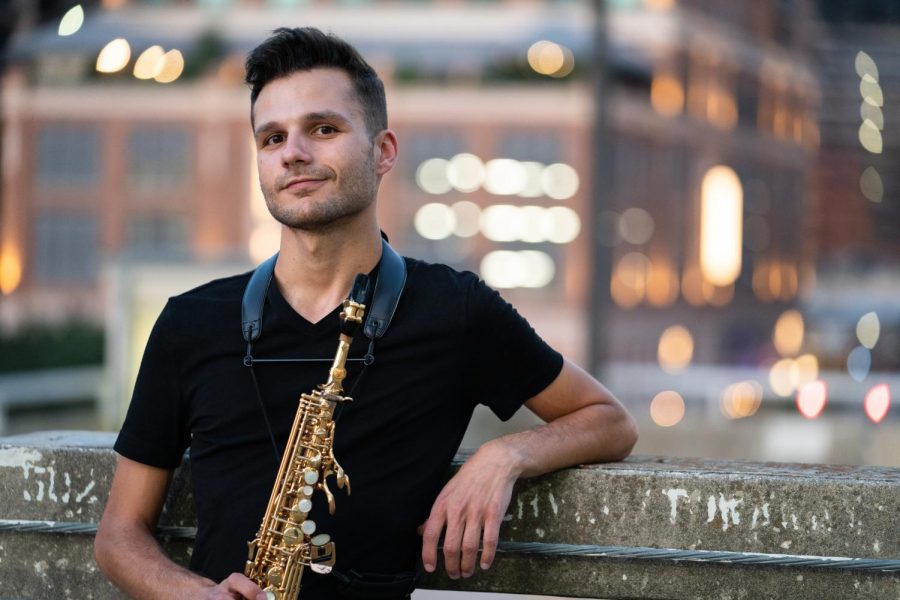UT doctoral candidate receives inaugural Kevin Garren Memorial Scholarship for contributions in research on musicians’ health
January 26, 2023
When Thomas Kurtz woke up one morning in 2016, he found that he could not play his saxophone, the instrument he had loved since he was 10 years old.
With his fingers paralyzed, Kurtz said he could no longer push the keys on the woodwind. Later, health professionals diagnosed him with focal dystonia, a neurological condition resulting in involuntary muscle contractions in isolated body parts. Faced with only a few costly and temporary treatments, such as botox, Kurtz said he began looking for a more affordable alternative.
“One of my professors introduced me to (body mapping) when I was pursuing undergrad, which was a holistic way to relearn these movements that hadn’t served me well,” said Kurtz, a doctoral candidate with a focus on saxophone performance. “I started taking regular body mapping lessons with a certified body mapping educator, and it changed my life. I was able to relearn how to play the instrument in a healthy way, and I recovered successfully from focal dystonia.”
Now a certified body mapping educator himself, Kurtz’s research not only helps students in underserved communities, but also musicians on campus. Recognized by the non-profit D’Addario Foundation, Kurtz received the inaugural Kevin Garren Memorial Scholarship last fall for his ongoing efforts in creating accessible educational materials on musicians’ health for impoverished students across Central Texas.
“We have people come in and talk about the importance of musicians’ health,” Kurtz said. “I really like talking about musicians’ health to younger students because that’s where it all starts.”
After playing a piano piece with large intervals between notes last year, Julia Frank said her professor recommended her to try body mapping to reduce the pain and tension in her hands.
“You’re not an athlete, (so) nobody expects you to get injured,” music education freshman Frank said. “People might scratch their nose at it when they look at you and say, ‘Oh, you’re injured (after) playing an instrument.’ But within the (music) community, I think everyone really understands how much your body actually does when you’re playing an instrument.”
The D’Addario Foundation funds and partners with grassroots and community organizations aiming to help the lives of marginalized and low-income students through music education. Kurtz looks to contribute to the foundation’s goals through body mapping education, teaching musicians a set of techniques and exercises that limit the amount of strain put on their limbs and fingers.
“Like anything, forming good habits early is the best opportunity to avoid any long-term injury,” said Stephen Page, an associate professor of saxophone. “(Kurtz’s) want to do that is both incredibly helpful and will be a great contribution to these young people, but also unique in that it’s not being done very often or widely.”
Page, who first met Kurtz as an undergraduate student at Montclair State University, said he watched his research in the body mapping field unfold over the past several years.
“It’s always remarkable to have an opportunity to observe someone’s growth over a long period of time,” Page said. “It’s really rewarding to see somebody really find their version of success to really define their path in the world, take a vision they have for themselves and bring it to fruition.”












